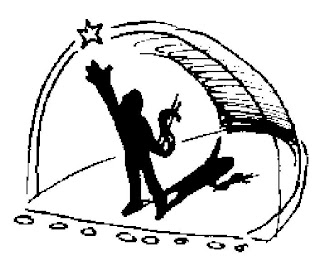44) Ichabod Crane - I Remember Him Well...
(A $7.99 + S&H Predictive Halloween Tale)
T
|
he Crane family I knew, lived at the corner of my street. Their property contained a pond with snapping turtles and a ranch-style house with a two-horse stable. A wooden fence and thick Evergreens surrounded it.
There were three brothers; I was friendly with Stuart, the youngest.
Then there was Ichabod. Poor Ichabod.
Ichabod always wanted free food, wine, women, and a bed; and everyone knew it.
In school, we called him 'Icky' because he constantly picked his nose. And his hair was always unkempt, his fingernails filthy, and his clothes always wrinkled and disheveled; he was generally an unkempt slob. He was skinny, scraggly, wore glasses, and walked pigeon-toed. It was hard to move past his outward appearance.
He moved into town during primary school, after many of our classmates had established 'elementary social circles', and was therefore, shunned. He was a frequent guest of the Headmaster, who believed, 'spare the rod and spoil the child'.
Poor Ichabod.
By middle school, he was a loner and quick to lose his temper. Little did we know he'd also lose his head.
We never conceived he'd become a terrible, monstrous murderer, nor that he'd become infamous, after the newspapers serialized him along with the Revolutionary, Mercenary, Hessian, Headless Horseman who patrolled our woods after dark, making us respectful of our sleepy Hollow. Yet, I suppose, the writing was on the wall - and the pumpkin shell - a spooky Jack-o’-lantern, was on the ground, across the bridge, poor Icky never to be seen or heard of, again…
But bad things happen to good people and we just didn't realize what effect our behavior had on others. Childhood learning and experiences have far-reaching effects and can scar us for a lifetime. And scare us for a lifetime; to this day, you won’t catch me walking in the Hollows after dark.
(To boot, there was Horrible Hannah, who escaped from the mental asylum when it burned one year, who lived in the woods, came out at night, could run as fast as the wind, and could smell colors, leaving nowhere to hide! A tale for another time…)
Poor Icky. What his youth must have been like. And we feared he’d someday become a justice of the ten pound court; what would that have meant?
We are most impressionable in our youth, and that’s our first exposure to money.
Historically money is 'dirty'. Even Bugs Bunny spanks Babyface Finster for touching the dirty money ('Baby Buggy Bunny'). Parents tell children not to talk about money at the dinner table, and not to repeat things about it outside the home; spouses feel the need to hide or protect money from each other. Money is hidden rather than explained, taught and integrated, which might lead to a healthy relationship with money.
Later, as fairytales go, the boys learn business & finance, and go out into the world to ‘find/make their fame & fortunes’. The girls go to the kitchen and learn homemaking & household budgeting, as they move from ‘Daddy’s House’ to ‘Husband’s House’.
Even fraternity Brothers who study business together and after college talk about their earnings, eventually stop doing so. In spite of secrecy and loyalty, money becomes taboo and embarrassing - embarrassing about how much you earn and spend - embarrassing about how much you don't earn and can't spend.
Friends won't invest with friends who are professional money managers due to attached stigmas and the potentially bad consequences.
Yet, in spite of similar privacy restrictions, people will confide in friends who are doctors, lawyers, and clergy, seemingly more intimate relationships.
People will share their secrets about sex, drug use, and health before they will about their money.
At best, having or discussing money is in bad taste; at worst, it’s a curse.
Do you share these values?
So, if we all keep such secrets, and sow such seeds, teasing others, making ignorant value judgments and poor decisions, unhealthily inculcating our kids, living like greedy, amoral or immoral '1%ers', craving the greener grass on the other side of the fence, or even coveting another's belongings or spouse, do we not deserve what we reap?
And what of the Grim Reaper? You can’t take it with you.
Closed minds are more dangerous than closed purses and purposes.
Money and Morality begin at home. Their tiny buds can germinate at school, and eventually business and society. The 'Haves and Have Nots' do not have to be measured in dollars, versus health, happiness, peace, creativity, family, friends, arts & entertainment, hobbies, and intellectual pursuits. When we say someone is rich, we would need not qualify it by stating that we don’t mean money. Wouldn't it be wild to have to qualify it as material wealth?
So I tell my tale of an Icky Halloween. Alas, poor Ichabod. ('And what about Naomi?')
Neighbors, heed well my hallowed warning: the Eve of All Hallows shall outlive your pursuit of currency. Use your head, or lose it! Make conscious, deliberate decisions about your quest for wealth; Icky rides this night!
What's your relationship with money? Is money a tool? A prize? A weapon? Does it represent safety and security? Do you use it for good? Do you use it for evil? Do you use it ignorantly or frivolously? Is money, itself, good? Or is money bad? (‘The Shadow knows…’)
What's important about money to you?
.jpg)



